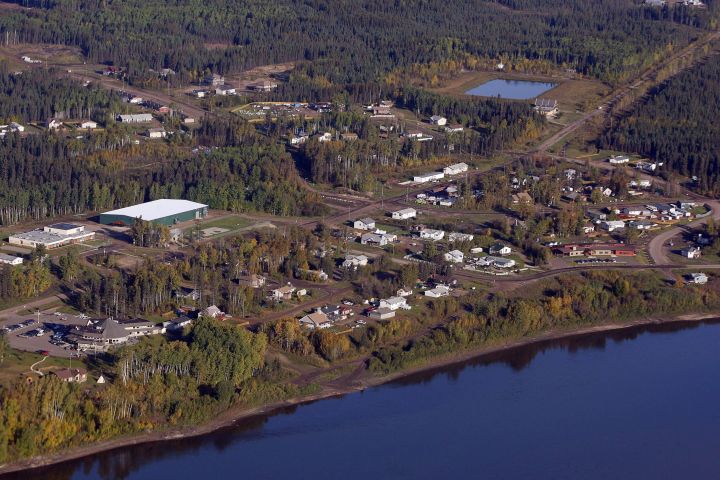A First Nation community in northern Alberta announced Friday it is setting up checkpoints around its perimeter to keep visitors away over concerns about the potential spread of the novel coronavirus.

“In a joint meeting held today in Fort McKay between Fort McKay First Nation Chief Mel Grandjamb… Fort McKay Métis President Ron Quintal and their respective council members, it was agreed to come together as one nation and work jointly to keep the COVID-19 virus away from our community,” the Fort McKay First Nation said in a news release.
Officials in the community said COVID-19 has “made its way to our doorstep,” citing what they said is a confirmed case of the disease in Fort McMurray.
READ MORE: Alberta premier, chief medical officer of health to provide update on COVID-19
As of 2:30 p.m. on Friday afternoon, the Alberta government had reported 10 confirmed cases of COVID-19 in Alberta’s North zone. In total, Alberta has 146 confirmed cases.
The Fort McKay First Nation said checkpoints were being set up around the community and that only residents, essential services and staff will be let in.
“The Fort McKay First Nation and their community members have always relied on our land for security and as a refuge,” officials said. “Today we are exercising our sovereign rights and will be controlling access into our lands.
“These measures serve to decrease pathways for the COVID-19 virus into our community and to protect the heath and safety of all our members.”
Watch below: Some videos from Global News’ coverage of the COVID-19 crisis in Alberta.
The Fort McKay First Nation is surrounded by major oilsands operations. Officials said they want both the general public and the business community to respect their decision with regard to mitigating the impact of the COVID-19 crisis in their community.
“Together, as a nation, we will persevere and manage through this emerging situation,” officials said.
On Thursday, Alberta health officials announced the province had recorded its first death as a result of COVID-19.
READ MORE: Alberta reports province’s 1st COVID-19 death, officials working on plan to enforce new rules
Questions about COVID-19? Here are some things you need to know:
Health officials say the risk is low for Canadians but warn this could change quickly. They caution against all international travel. Returning travellers are asked to self-isolate for 14 days in case they develop symptoms and to prevent spreading the virus to others.
Symptoms can include fever, cough and difficulty breathing — very similar to a cold or flu. Some people can develop a more severe illness. People most at risk of this include older adults and people with severe chronic medical conditions like heart, lung or kidney disease. If you develop symptoms, contact public health authorities.
To prevent the virus from spreading, experts recommend frequent handwashing and coughing into your sleeve. And if you get sick, stay at home.
For full COVID-19 coverage from Global News, click here.
- Capital gains changes are ‘really fair,’ Freeland says, as doctors cry foul
- Ontario doctors offer solutions to help address shortage of family physicians
- ‘Dangerous message’: Experts slam anti-sunscreen claims circulating online
- ‘Trying not to die’: Tourism operators loaded with debt despite rising demand








Comments